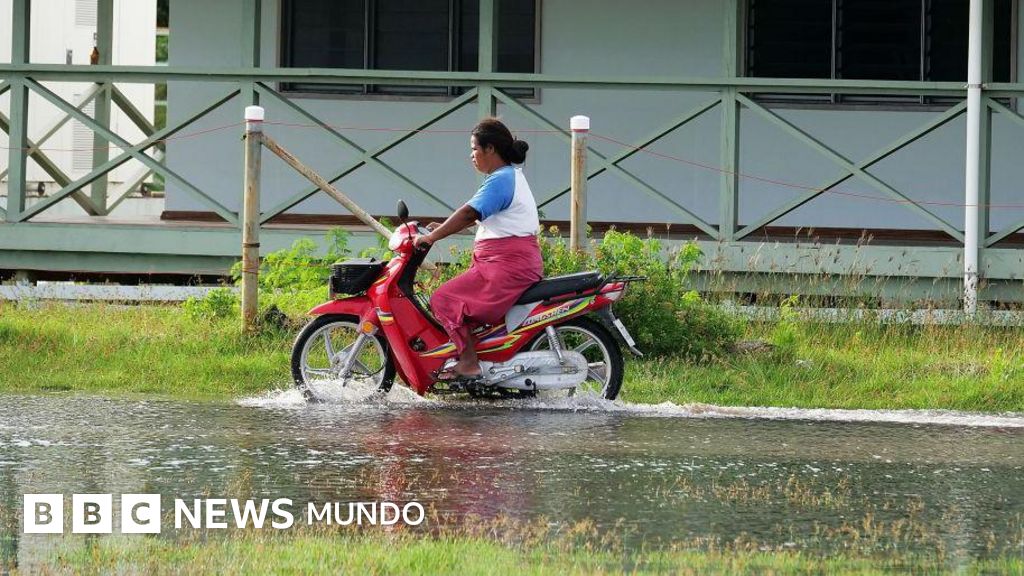

Image source, Getty Images
-
- Author, Redacción*
- Author's title, BBC News World
More than a third of the inhabitants of Tuvalu Island have registered in a raffle to receive the world's first climate visa, which allows them to permanently migrate to Australia.
The first registration series opened on June 16 and the influence of applications indicates that this pioneering program will have many more applicants than available visas.
Until Friday Australia has received 1,124 applications, which translate into a total of 4,052 citizens of Tuvalu with the inclusion of their relatives.
According to the 2022 census, this Pacific island is inhabited by 10,643 people.
However, only 280 inhabitants of Tuvalu a year can receive this visa that is granted by lottery and whose registration closure will be on July 18.
According to the Australian Foreign Ministry, this program is a unique response to climate displacement: “This is the first agreement of this type in the world, which offers a way for mobility with dignity as the impacts of climate change worsen.”
Being only five meters above sea level, this small archipelago in the Pacific is one of the nations most threatened by climate change.
How it works
Those who are elected in the draw will receive a permanent and indefinite residence in Australia, with the possibility of traveling inside and outside the country.
The visa, whose postulation costs about US $ 11, also includes support from the Australian government when they reach the country, as access to the national health system, subsidies for child care and the possibility of studying in schools and universities with the same plan that Australian citizens receive.
In addition, unlike other visa schemes for Pacific peoples, a job offer in Australia is not required.

Image source, Getty Images
The new visa class was created as part of the Faleepili Australia-Tuvalu Union, announced in August 2024, which includes Canberra's commitment to defend the island against natural disasters, public health emergencies and military aggressions.
“For the first time, a country has legally pledged to recognize the future status of state and sovereignty of Tuvalu despite the negative impact of the increase in sea level induced by climate change,” said Prime Minister, Feleti Teo, last year.
NASA scientists have predicted that most of the territory and the critical infrastructure of Tuvalu will be below the level of the current Time Alta by the year 2050.
For Jane Mcadam, an expert in immigration laws and refugees from the New South Wales University of Sydney, this visa highlights the importance of creating opportunities for people to move in the context of climate change and natural disasters.
“The dangers of the increase in sea level are evident, including coastal floods, storm damage and water supply problems. But there is much more at stake,” says Mcadam in an article published in the academic site The Conversation.
The expert states that for many, especially for young families, this will represent an opportunity for education and professional training in Australia.
And he adds: “For the government of Tuvalu, the new visa also seeks to boost the economy. Migration is now a structural component of the economies of many Pacific countries.”
*With information from BBC News Wilson.

Image source, Getty Images
Subscribe here To our new newsletter to receive every Friday a selection of our best content of the week.
And remember that you can receive notifications in our app. Download the latest version and act.